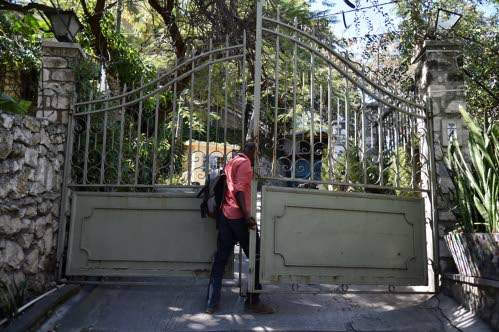PORT-AU-PRINCE, Haiti — View of the entrance of the Oxfam offices in the commune of Petion Ville, in Port-au-Prince, Haiti, on February 13, 2018. (Photo: AFP)
Some people carry themselves well, thinking through their decisions and responding to and respecting the emotions of those around them. As easy as this grace may seem, it’s not innate or something people do automatically. Ethics, like most patterns of behaviour and thought, must be worked on.
A key component of workplace ethics is integrity, or honesty and doing the right thing at all times.
Now more than ever, how an organisation does business is just as important as the results they achieve. It’s no secret that many of the great reputational disasters of recent years have been made worse by attempts to sweep them under the rug.
In recent times, the ethics of charities working in the Caribbean have been called into question. One of the UK’s biggest charities, Oxfam, confirmed allegations of sexual misconduct by its representatives in Haiti in 2011 which resulted in several staff members being dismissed or resigning after the internal investigation. Oxfam, however, denied any cover-up. Officials representing the charity were in the country offering relief following the devastating 7.0 magnitude earthquake that killed more than 200,000 people in 2010.
This scandal has no doubt eroded public trust in the organisation. Regardless of its noble cause, it must uphold a high standard of ethical behaviour. The decision to behave ethically is a moral one; employees must decide what they think is the right course of action. Ethical behaviour goes hand in hand with corporate social responsibility which can bring significant benefits to a business.
Today’s organisations are expected to commit to a high standard of ethical behaviour and willingness to ‘do the right thing’ Professional bodies such as ACCA (the Association of Chartered Certified Accountants) have a particular responsibility to uphold and lead on ethical issues for those in finance.
The ACCA Code of Ethics and Conduct (the Code) is binding on all our members and students, as well as any partner (or director) in an ACCA practice. It’s based on the International Ethics Standards Board for Accountants (IESBA) Code, and the fundamental principles that we set out are the same as IESBA’s.




Leave A Comment